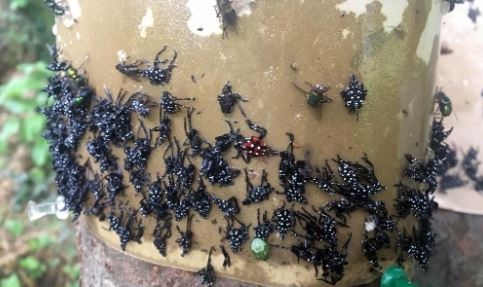
(Photo: AP)
CHICAGO, May 9 (Xinhua) -- Flies that cannot take to the air respond by sleeping more as they learn to adapt to their flightlessness. This suggest that sleep may be an evolutionary tool that helps animals adapt to challenging new situations, according to a study from Washington University School of Medicine in St. Louis.
To explore the relationship between challenging circumstances and sleep, the researchers took away flies' ability to fly.
The researchers placed some newly emerged flies in tiny containers so they could not expand their wings, and they genetically modified other flies so that the insects' wings failed to expand. Both scenarios rendered the young flies permanently flightless. The researchers also grounded older flies by disabling their wings. In all cases, faced with the inability to fly, the animals slept more than usual.
In subsequent experiments, the researchers traced the neurological circuit that signals to the brain that the wings aren't functioning and trigger the impulse to sleep more.
"When we identified the neurons that were activated when we cut or glued the wings of adult flies, they turned out to be the same neurons involved in the normal developmental process of wing expansion after emergence," said first author Krishna Melnattur.
The fact that wing injury and normal wing development are linked to sleep through the same neurological circuitry makes sense from an evolutionary standpoint, the researchers said. The circuit is active in young flies because their developing brains need sleep as the animals expand their wings, learn to fly and begin to navigate the world around them.
"And then the whole circuit can get reactivated later in life when something happens that forces a fly to adapt to a new normal," said senior author Paul Shaw, a professor of neuroscience. "Suddenly, its brain needs to be as flexible as when it was young. It can no longer fly, but it still needs to get food, it needs to compete for mates, it needs to avoid dying. We think that sleep amplifies the brain plasticity the fly needs to survive."
The researchers are planning experiments to determine whether increased sleep helps flightless flies survive. Their findings also may provide clues to why some people sleep more than others and why some sleep disorders arise.
The findings were published on Friday in Science Advances.


